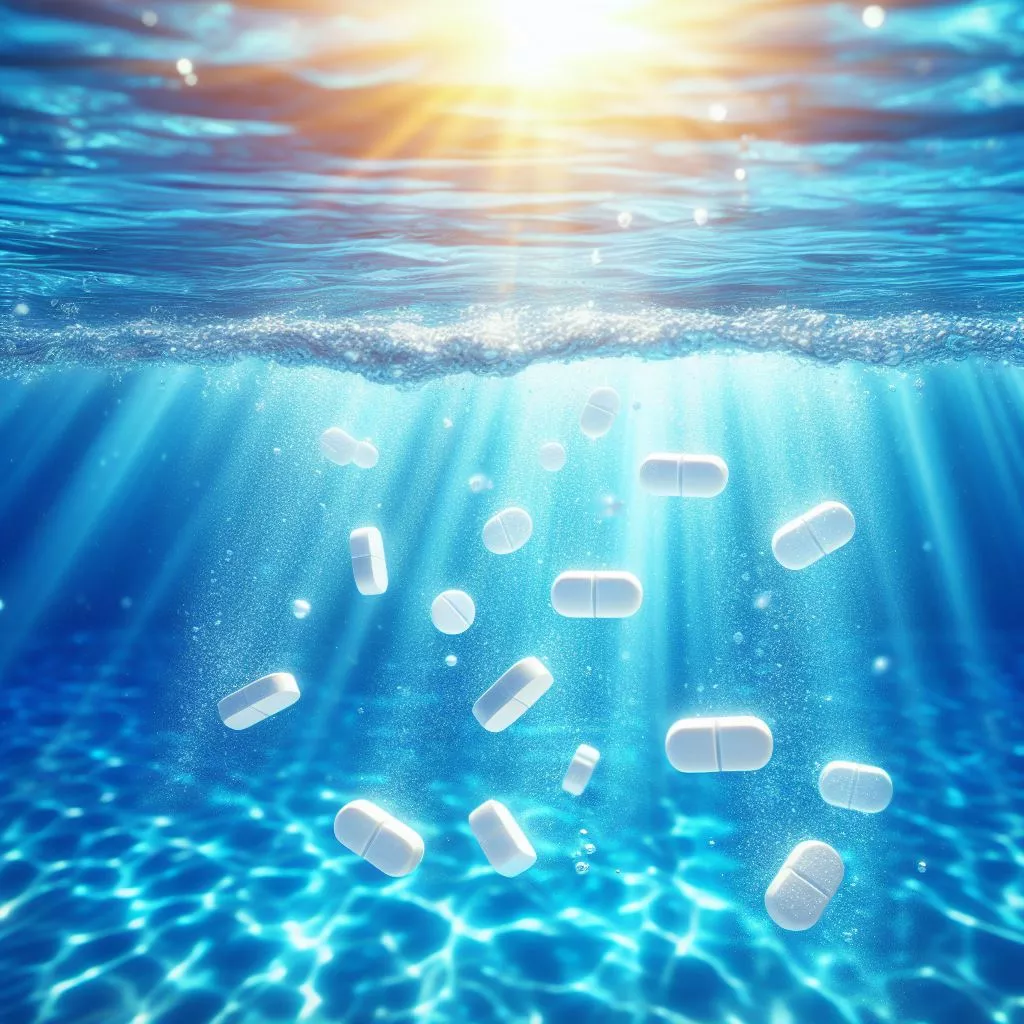While pool chlorine tablets play a crucial role in maintaining water sanitation, it’s essential to be aware of potential safety concerns associated with their use. In this article, we will explore the various unsafe factors and safety hazards that can arise from the use of pool chlorine tablets, shedding light on the importance of proper handling, storage, and usage to ensure a safe swimming environment.
Chemical Composition and Handling
Understanding the chemical composition of pool chlorine tablets is the first step in addressing safety concerns.
Chlorine Concentration
Pool chlorine tablets contain concentrated chlorine, which can be hazardous if mishandled.
Direct skin contact or inhalation of chlorine dust may lead to irritation and respiratory issues.
Proper Handling
Users should wear appropriate protective gear, such as gloves and masks, when handling chlorine tablets.
Tablets should be handled in a well-ventilated area to minimize the risk of inhalation.
Storage Risks
Improper storage of pool chlorine tablets poses significant safety hazards.
Incompatible Materials
Chlorine tablets should be stored away from incompatible materials, such as acids, ammonia, or other reactive substances, to prevent chemical reactions.
Moisture Exposure
Exposure to moisture can cause chlorine tablets to degrade rapidly, releasing chlorine gas and increasing the risk of corrosion.
Secure Containers
Store chlorine tablets in a cool, dry place in tightly sealed containers designed for chemical storage.
Accidental Ingestion and Contact
Accidental ingestion or contact with pool chlorine tablets can have severe consequences.
Child Safety Measures
Keep chlorine tablets out of reach of children and ensure they are stored in child-resistant containers.
Educate children about the potential dangers of handling or ingesting chlorine tablets.
Avoid Skin and Eye Contact
Users should avoid direct skin contact with chlorine tablets and should wash hands thoroughly after handling.
In case of accidental contact with eyes or skin, follow recommended first aid procedures and seek medical attention if necessary.
Over-Chlorination and Water Quality
Excessive use of chlorine tablets can lead to over-chlorination, impacting water quality and user safety.
Proper Dosage
Follow manufacturer guidelines for the appropriate dosage of chlorine tablets based on pool size and water volume.
Regularly test and adjust chlorine levels to maintain a safe and comfortable swimming environment.
Health Risks
Over-chlorination can cause skin and eye irritation, respiratory issues, and may pose health risks to swimmers.
Adequate water circulation and filtration are essential to prevent localized high chlorine concentrations.
Inadequate Ventilation
Poor ventilation during the handling and use of chlorine tablets can result in respiratory issues.
Ventilation Requirements
Use chlorine tablets in well-ventilated areas to minimize the risk of inhaling chlorine gas.
Avoid enclosed spaces without proper air circulation.
Respiratory Protection
If working in confined spaces or areas with limited ventilation, use appropriate respiratory protection equipment.
Environmental Impact
The environmental impact of chlorine tablets extends beyond the pool, posing risks to surrounding ecosystems.
Disposal Practices
Improper disposal of chlorine tablets can lead to environmental contamination.
Follow guidelines for safe and responsible disposal, which may include recycling or hazardous waste disposal.
Avoiding Pool Draining
Minimize the need for pool draining, as discharging chlorinated water into natural bodies can harm aquatic life.

Educational Initiatives
Promoting awareness and education about the safe use of pool chlorine tablets is essential for minimizing risks.
User Training
Provide training for pool owners, maintenance staff, and users on the proper handling, storage, and usage of chlorine tablets.
Emphasize the importance of reading and following product labels and instructions.
Emergency Preparedness
Have clear emergency procedures in place for handling accidental exposure or spills.
Ensure the availability of safety equipment, such as eye wash stations and first aid kits.
Conclusion
While pool chlorine tablets are indispensable for water sanitation, it is crucial to address the associated safety concerns to create a secure swimming environment. Proper education, handling, storage, and disposal practices are key elements in mitigating potential hazards. By promoting responsible use and adherence to safety guidelines, we can ensure that the benefits of pool chlorine tablets are maximized while minimizing risks to users, the environment, and surrounding ecosystems.





